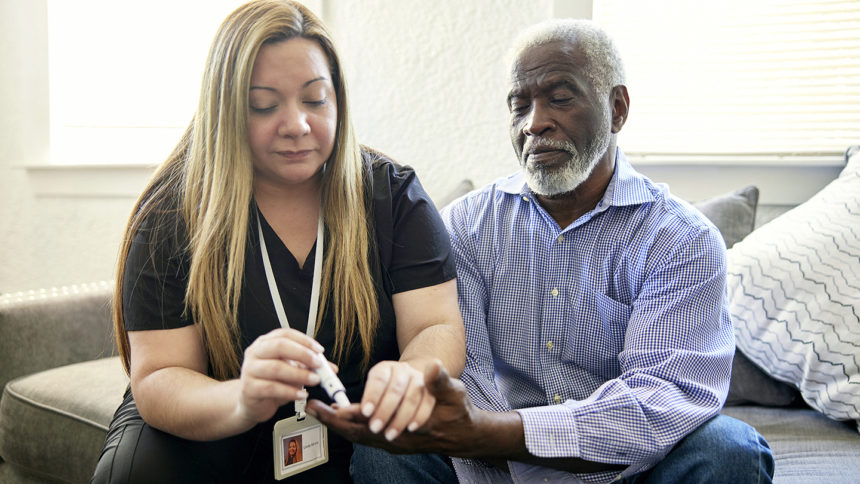
The American Diabetes Association on Monday released its 2023 standards of care, including new guidance on prevention, diagnosis and treatment in a framework of equitable care.
The evidence-based standards focus on care for people with diabetes and prediabetes and detail strategies for the prevention or delay of type 2 diabetes and its associated comorbidities.
Notable changes include:
- An emphasis on supporting higher weight loss (up to 15%) based on the efficacy of and access to newer medications when appropriate;
- New hypertension diagnosis cut-offs (hypertension is now defined as a systolic blood pressure ≥130 mmHg or a diastolic blood pressure ≥80 mmHg);
- The expanded role of SGLT2 inhibitor use in preserved and reduced heart failure ejection fraction;
- The role of finerenone in individuals with diabetes and chronic kidney disease with albuminuria; and
- New lipid management recommendations suggesting lower LDL goals for high-risk individuals
Also new this year, subject matter specialists were called on to bolster guidance on neuropathy, retinopathy, foot care and non-alcoholic fatty liver disease.
In addition, the authors consider how an understanding of the social determinants of health can affect holistic care delivery.
“This year’s annual report … considers the role health inequities play in the development of diabetes, particularly for vulnerable communities and communities of color disproportionately impacted by the disease,” ADA CEO Chuck Henderson said. “This guidance will ensure healthcare teams, clinicians and researchers treat the whole person.”
“Evidence-based recommendations drive better care for all people with diabetes, including vulnerable communities and those at high risk,” Robert Gabbay, MD, PhD, chief scientific and medical officer for the ADA, added.
Introduction and Methodology: Standards of Care in Diabetes–2023 was published online in the January issue of Diabetes Care.
Related articles:
Overtreated diabetes raises hypoglycemia risk in nursing homes, investigators say




